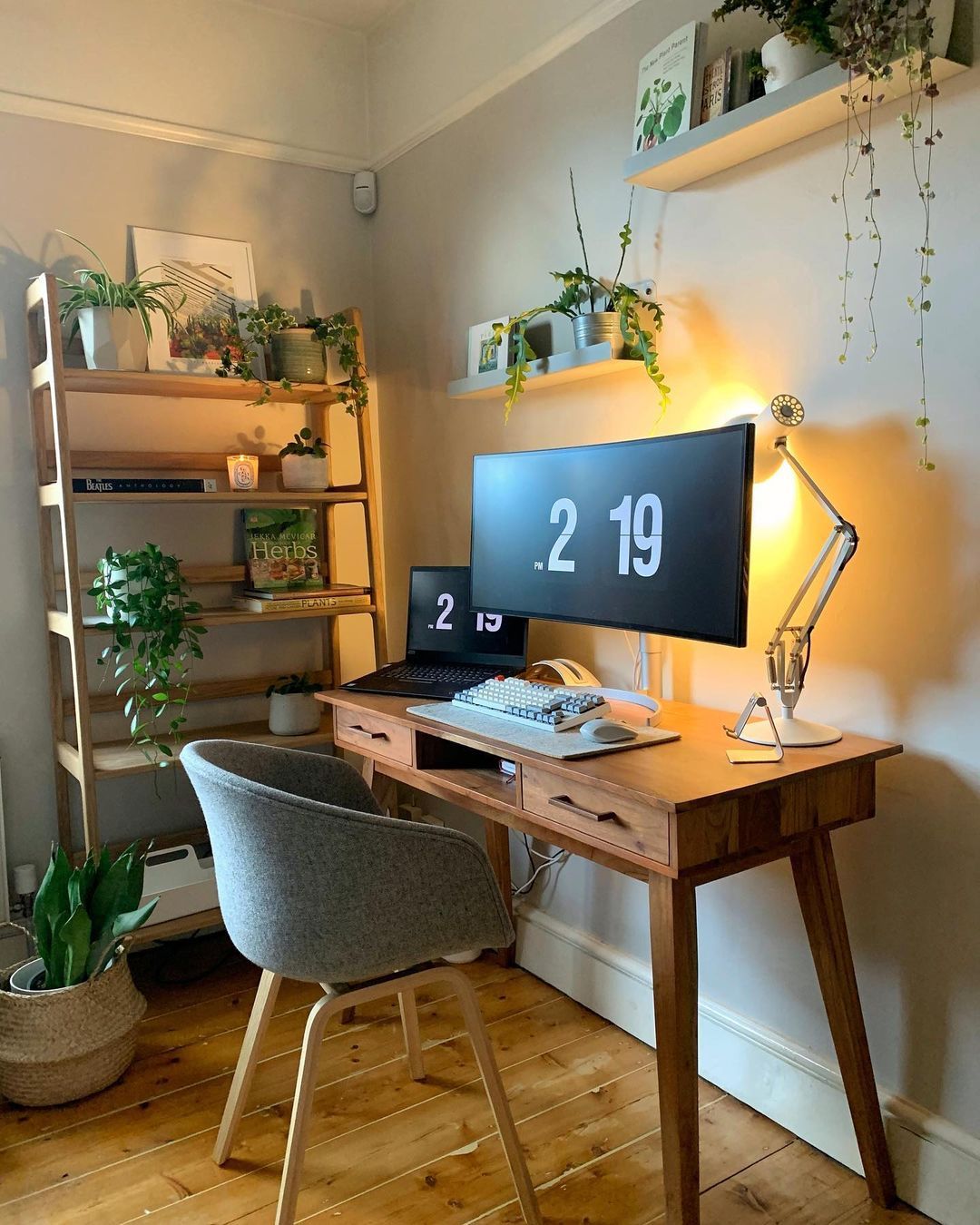Name: Madelaine and Andrew Maddock
Location: Earlswood, Surrey
Occupation: Freelance Editor (Madelaine) and Software Developer (Andrew)
Room size: 11 m² (118 ft²)
Cost of the setup: ~$3K, including a desk, shelves, screen, keyboard, and a chair
Social media: Instagram
Hey, Madelaine and Andrew! Tell us a bit about yourselves Madelaine : Hi, I’m a freelance editor working on books in academic publishing, and my husband is a software developer.
I have been working in publishing for twenty-one years (fourteen of them in London), and then I started working from home to raise our family.
I have always been interested in interior design as my whole family is full of artists and graphic designers.
Since childhood, I have been inspired by great designers such as William Morris, as well as more modern styles, like mid-century.
Madelaine and Andrew’s home setup combines mid-century chic and an urban jungle ambience infused with Scandinavian minimalism Two years ago, I took my interest in styling and decorating our home to Instagram and created an account on our home interior style .
I’ve loved being inspired and motivated by fantastic design ideas on Instagram and chatting with like-minded people.
Urban Jungle Setup Tours from Nature Lovers Who Work from Home
Adding plants to the workspace boosts your productivity.
Can you describe your home setup?
Andrew: We designed our workspace around the idea of wood aesthetics and a lot of foliage and greenery to create an organic and natural feel.
Madelaine: The Tikamoon desk is probably the most important part of our setup. We chose it because it wasn’t too deep (for spacing concerns) and had useful drawers incorporated.
The shelving unit looks great too. It has a mid-century vibe that we both adore and displays quite a few books and plants nicely.
This post is for subscribers only
Become our Productivity Patron for just $5/month and get insider access to 100+ workspace interviews, expert tips, and exclusive content to upgrade your setup.
Become a member
Already have an account? Sign in


